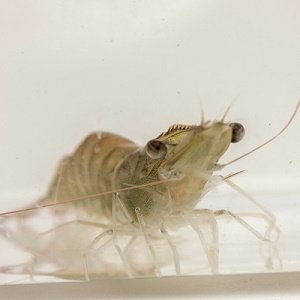
In the Mekong Delta of Vietnam, infectious diseases such as White Spot Disease (WSD) and Acute Hepatopancreatic Necrosis Disease (AHPND) pose significant threats to shrimp producers, particularly those in small-scale operations. These diseases, which spread through shared water sources and open production systems, cause significant economic losses.
A team of researchers from Wageningen University & Research and Can Tho University assessed the potential of cooperation and information exchange among producers to reduce losses caused by infectious diseases like WSD and AHPND.
The Problem
Shrimp farming in open ponds in the Mekong Delta is highly susceptible to disease spread. Additionally, small-scale aquaculturists lack resources for advanced disease prevention measures.
Farmers rely on individual aquaculture practices like biosecurity and water treatment, but their effectiveness is limited due to systemic risk factors. These factors, along with shared water sources, require collective action rather than individual solutions.
The Study
The research team hypothesized that increased cooperation among shrimp farmers, beyond individual aquaculture practices, can reduce systemic risk and mitigate performance losses caused by diseases like WSD and AHPND.
They explored three scenarios:
- Synchronization: Sharing information on disease outbreaks and adopting synchronized farming practices.
- Information Exchange: Sharing resources, expertise, and implementing joint disease prevention measures.
- Synchronization – Information Exchange: Collaborative risk management with shared investments in infrastructure and disease control strategies.
Methodology
For their study, the researchers conducted:
- Expert elicitation workshops: Shrimp farming and disease management experts provided insights into the impact of different cooperation scenarios on disease spread and performance losses.
- Stochastic simulation model: Expert knowledge was translated into a computer model simulating disease outbreaks and performance losses under various cooperation scenarios.
Key Findings
Initial findings from the study suggest that increased cooperation can significantly reduce performance losses from WSD and AHPND. Collaboration in activities such as synchronized farming practices and information exchange holds promising potential.
The main results were:
Stay Always Informed
Join our communities to instantly receive the most important news, reports, and analysis from the aquaculture industry.
- Synchronization can reduce losses by 20-30%.
- Information exchange offers even greater protection, potentially reducing losses by 40-50%.
- Synchronization – Information exchange has the potential for drastic reductions of up to 80%.
Impact on the Shrimp Industry
This research highlights the power of collaboration in the Vietnamese shrimp industry; however, the results can be applied to the global shrimp farming industry. By working together, aquaculturists can achieve a stronger defense against infectious diseases, leading to higher yields, better livelihoods, and a more sustainable aquaculture industry.
Additionally, the study encourages further research and implementation of collaborative disease management strategies in the Mekong Delta and beyond. This could involve:
- Facilitating aquaculturist cooperation through training programs and support structures.
- Developing collaborative risk management tools and infrastructure.
- Encouraging information exchange and joint disease prevention efforts.
Conclusion
“Our results show that experts indicate that all three cooperation scenarios would result in lower performance losses during WSD and AHPND outbreaks compared to the farm-based scenario,” concluded the researchers.
The research findings provide evidence of the benefits of cooperation in shrimp farming, motivating aquaculturists and organizations to implement collaborative disease mitigation strategies.
By harnessing the power of cooperation, shrimp producers can address the challenges of infectious diseases and build a more resilient and profitable future. Ultimately, increased cooperation could lead to a more sustainable and resilient shrimp farming industry in the Mekong Delta and beyond.
The study was conducted under the SUPERSEAS program: Supermarket supported area-based management and certification of aquaculture in Southeast Asia, funded by the Food and Business Global Challenges Program of the Netherlands Organization for Scientific Research.
Contact
Yann de Meya
Business Economics Group, Wageningen University & Research, Wageningen, the Netherlands
Email: yann.demey@wur.nl
Reference (open access)
Ho Hong Lien, Yann de Mey, Dang Kieu Nhan, Simon Bush & Miranda P.M. Meuwissen (2024) Can cooperation reduce yield risks associated with infectious diseases in shrimp aquaculture in Vietnam?, Aquaculture Economics & Management, DOI: 10.1080/13657305.2024.2301996
Editor at the digital magazine AquaHoy. He holds a degree in Aquaculture Biology from the National University of Santa (UNS) and a Master’s degree in Science and Innovation Management from the Polytechnic University of Valencia, with postgraduate diplomas in Business Innovation and Innovation Management. He possesses extensive experience in the aquaculture and fisheries sector, having led the Fisheries Innovation Unit of the National Program for Innovation in Fisheries and Aquaculture (PNIPA). He has served as a senior consultant in technology watch, an innovation project formulator and advisor, and a lecturer at UNS. He is a member of the Peruvian College of Biologists and was recognized by the World Aquaculture Society (WAS) in 2016 for his contribution to aquaculture.







